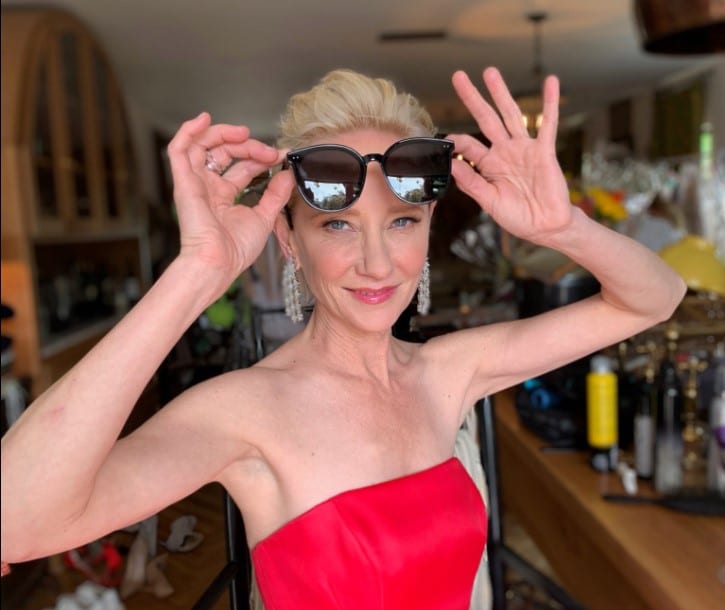Actress Anne Heche died last week at 53 after a fiery crash. Her tragic end was a lifeline to others. She was an organ donor.
Heche was declared brain dead on August 12. She was “peacefully taken off life support” on August 14, after a suitable transplant recipient was found.
Her family revealed that it had “long been her choice to donate her organs and she’s being kept on life support to determine if any are viable.”
Organ Donors and Life Support
“Life support” is necessary because after the heart stops, organs are no longer useful. Only the cornea survives death, and it lasts only about six hours. But Organs stay healthy only for a short period of time after removal. According to Organdonor.gov, only three in 1,000 people die in a way that allows for organ donation after death.
That’s why it is important to make your wishes known while you are alive. Minutes count.
How to Become an Organ Donor
One way to do that is to register. Many register as an organ donor through the Arizona Department of Motor Vehicles but you can also register online at the Donate Life AZ Registry.
Another way is to include your wishes and any related instructions in your estate planning documents. A client’s “Advance Directives” often include a provision that expresses their wishes regarding organ donation. Such a provision can and should include specific organs or purposes, if desired.
At Fleming & Curti, we ask every estate planning client whether they would like to be an organ donor. For clients who say yes, we include a sentence in their health care power of attorney. The provision can be general or reflect the client’s specific desires. It might say general organ donation to a living transplant recipient. Or tissue donation to medical research. Or specific tissues or organs, like corneas only.
Another Choice for Arizonans
Arizona residents have another option: whole body donation. The University of Arizona’s Willed Body Donation Program allows for donation of the entire body. The program focuses on medical training at the U of A’s medical school. Afterward, the donor’s body is cremated and the ashes are scattered – not returned to the donor’s family.
It’s free. But if the donation cannot occur (such as if the patient had Covid-19), the donor’s family must make alternative arrangements. Donors must complete the donation forms; no one can make the donation on your behalf. Forms for registering are available at the University of Arizona’s body donation website
State Coordination by OPO
Organ procurement organizations, or OPOs, coordinate organ donation at the state level. In Arizona, the OPO is Donor Network of Arizona.
The Arizona’s OPO coordinates donations with state hospitals in accordance with federal rules. When a person is near death or dies, the hospital tells the OPO. Then the OPO decides whether the patient is a possible donor.
The OPO needs legal consent. They’ll review the state registry. If not, they may check the person’s driver’s license, advance directives or other legal form. If the patient has expressed a desire for donation, that’s legal consent.
Organ Donor Documentation Is Key
Arizona, like all U.S. states, has “first person authorization.” If a person expresses an intent to be an organ donor in an official way during lifetime, it’s legally binding at death.
If the patient is not registered and has no other documentation, the medical team may ask the closest relative to consent.
With permission, the OPO tries to find transplant matches via the Organ Procurement and Transplantation Network (OPTN). The OPTN is a national database. It has all patients in the U.S. waiting for a transplant. The system creates a list of patients who match, and the transplant surgeon decides whether to move forward. Most organs go to patients nearby, but some may go to in other parts of the country.
Organ Donors Needed
Still, too many in the United States wait for organs. Organdonor.gov says that as of February 2021, the number of patients on the national transplant waiting list was more than 107,000. Every nine minutes, another person is added.
Some have advocated that the we have an “opt-out” policy, like countries such as Spain. Everyone would be automatically assumed to be an organ donor unless they say otherwise. We have the opposite.
For Heche’s family, there was no question. Her wishes were clear.
If you are considering becoming an organ donor, think about what you want to accomplish. Do you want to help train new doctors? Provide for a transplant patient? Or assist in medical research that has the potential to affect many people? Once you have decided: Register in advance, include your wishes in estate planning documents, and communicate those wishes to your loved ones and health care providers.



